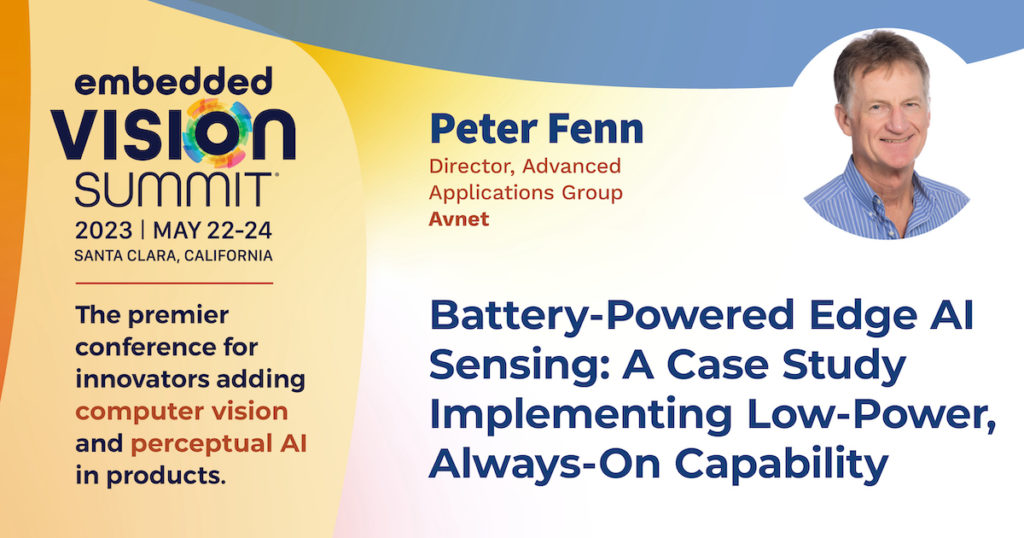Peter Fenn, Director of the Advanced Applications Group at Avnet, presents the “Battery-powered Edge AI Sensing: A Case Study Implementing Low-power, Always-on Capability” tutorial at the May 2023 Embedded Vision Summit.
The trend of pushing AI/ML capabilities to the edge brings design challenges around the need to combine high-performance computing (for AI/ML algorithms) with low power consumption (to enable battery-powered sensing systems). Designers are often faced with a choice between using an applications processor that lacks the required performance or exceeds the system power or cost budget, or using a GPU or NPU, which can yield power consumption in watts and battery life in minutes. Neither of these approaches is suitable for size-constrained, battery-powered, always-on edge AI/ML systems.
Using a case study of Avnet’s new smart sensing RASynBoard, Fenn explores several architecture and component selection trade-offs to enable always-on sensing capability. He explains several novel design techniques, from clock gating to power partitioning. Through this presentation, you’ll gain a better understanding of how you can add deep learning capabilities to your next design while reducing power to extend battery life and minimizing the size and cost of your smart product.
See here for a PDF of the slides.


